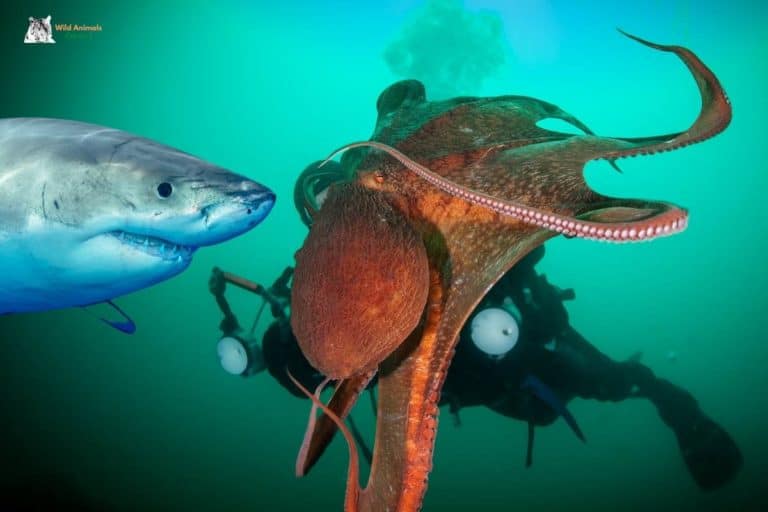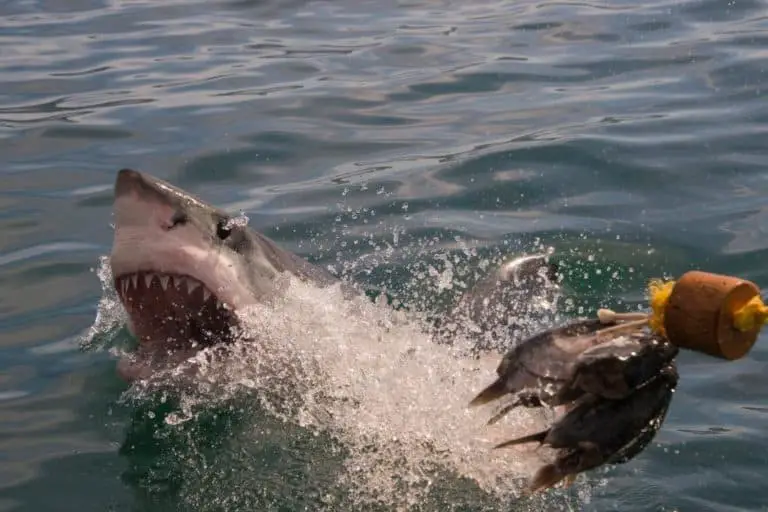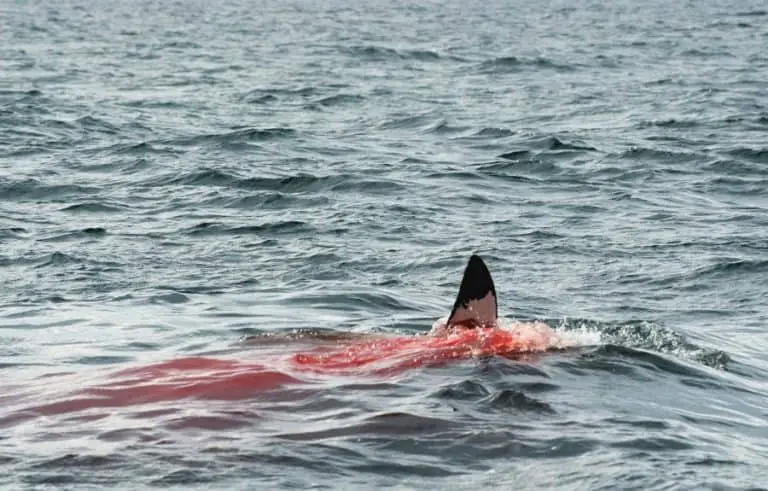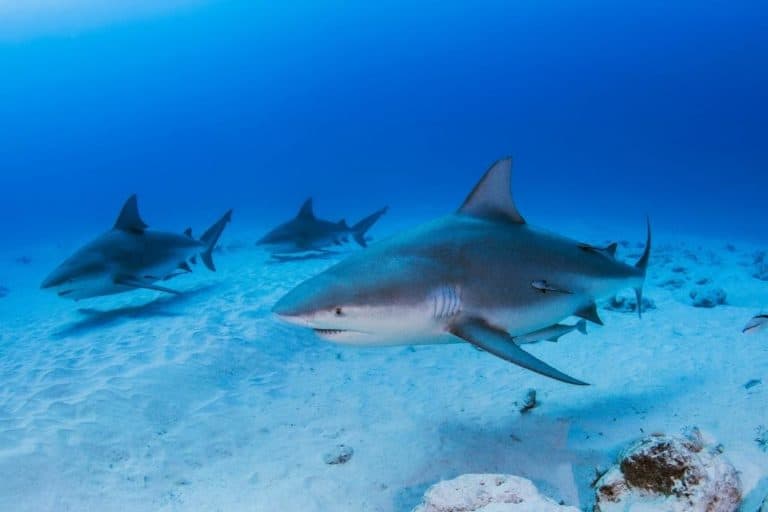Are Basking Sharks Dangerous? Do They Sharks Bite?
Basking sharks are the second-largest living fish in the world, behind only the whale shark. Despite their size, basking sharks are harmless to humans, and there have been no reported cases of them consuming people.
In fact, basking sharks are filter feeders and mostly eat plankton. However, they have been known to eat small fish, squid, and crab larvae.
While basking sharks aren’t dangerous to humans, they should still be respected because of their size and power. If you see a basking shark while swimming, it’s best to stay away and admire them from a distance.
Can Basking Sharks Eat Humans?
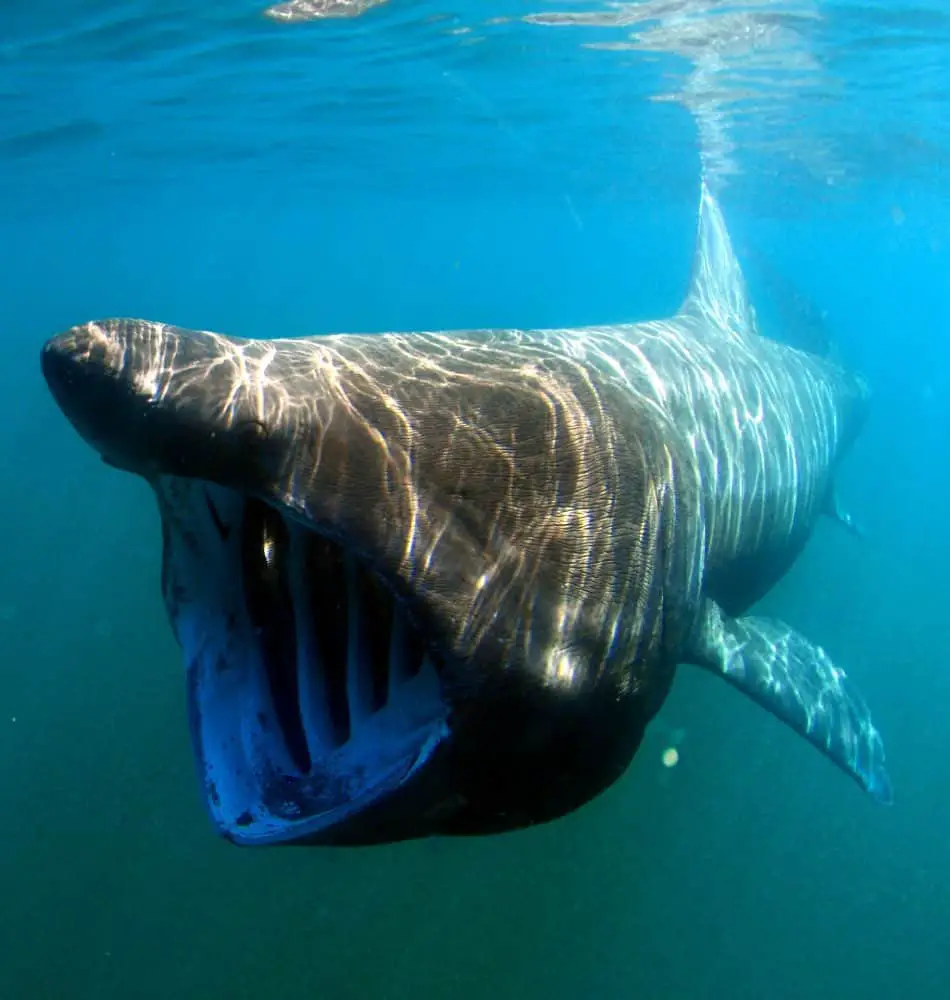
There are several reasons why a basking shark could theoretically eat a human.
- The shark’s mouth is wide, enabling it to consume large prey items in a single bite.
- The inside of the mouth is lined with sharp teeth that could easily puncture human skin.
- Basking sharks are sluggish swimmers, often moving with their mouths open.
As a result, basking sharks could mistake a human for prey and attempt to eat them.
However, there is no evidence that basking sharks have ever attacked or eaten humans, and it is generally considered safe to swim in waters where these animals are present.
What are basking sharks?
Basking sharks are the world’s second-largest fish, following only whale sharks. Cetorhinus maximus can grow up 45 feet long and weigh five tons on average.
Although they are enormous, they primarily feed on tiny plankton that they filter out of the water with their mouths open for 30 to 60 seconds before closing them and ingesting.
When they close their mouths, they trap water inside along with the plankton. Then they push the water back through tiny gill pores, and the plankton stays behind.
Where do you find basking sharks?
Basking sharks are often hard to spot since they spend most of their time in deep water. However, these gentle giants can be found in many different parts of the world.
They migrate hundreds of miles yearly and follow plankton blooms across the seas.
- During the summer months, basking sharks that inhabit the Atlantic coast of North America migrate to South America for the winter sun.
- They can often be found near the coast of Cornwall, up through the Irish Sea, and along the west coast of Scotland in the United Kingdom.
Are basking sharks dangerous to humans?
When most people think of sharks, they envision great white or tiger sharks; both of which have the potential to harm humans. However, another type of shark is far less threatening: the basking shark.
Basking sharks are giant fish, and despite their size, they pose little risk to humans. This is because they have small hooked teeth around 0.20/0.40 inches long, which are mostly useless.
Instead of biting their prey, basking sharks suck in water and filter out small fish and plankton. So, while basking sharks may be intimidating due to their size, they are not considered dangerous to humans.
Do Basking Sharks Bite?
Basking sharks are famous for wide-open mouths while swimming, giving them a menacing presence. Contrary to popular belief, these docile giants are not looking to bite anything that comes too close.
Basking sharks are filter feeders, meaning they strain tiny organisms out of the water for food. To do this effectively, they rely on gill rakers’ long, bristle-like structures in their gills rather than their teeth.
As a result, their teeth are pretty short and do not play any part in their feeding. So, if you see a basking shark with its mouth open, it’s likely just trying to catch a tasty meal.
What eats basking sharks?
Given their size and diet, you might wonder what eats basking sharks. The truth is, not very many things.
One of the main reasons basking sharks don’t have many predators is their size. They’re up to 40 feet long and weigh over 10,000 pounds; they’re simply too big for most animals to take on. There are, however, a few exemptions.
Orcas, also known as killer whales, are among the few creatures that prey on basking sharks. These massive sea mammals can reach lengths of over 30 feet and weigh up to 16,000 pounds, making them more than a match for a basking shark.
Another potential predator of the basking shark is the great white shark. While great whites are typically smaller than orcas, averaging around 15 feet in length, they’re still formidable predators. With their sharp teeth and powerful jaws, great white sharks have been known to take down much larger prey.
However, there has yet to be any concrete evidence that great whites actively target basking sharks. In fact, most reports of great whites attacking basking sharks appear to be instances of mistaken identity. So while great white sharks might attack and eat basking sharks, they seem unlikely to do so on purpose.
In conclusion, the basking shark doesn’t have many natural predators. The orca and the great white shark are two of the few creatures that could harm these enormous fish. However, such instances are uncommon.
Is it Safe to Swim With Basking Sharks?
Even if a basking shark did try to attack a human, their teeth are mostly made of cartilage and wouldn’t be able to do much damage. So, while encountering basking sharks can be frightening, they are pretty harmless.
Humans are more dangerous to basking sharks than the other way around. Basking sharks are often killed by boats or caught in fishing nets. Scientists believe that only approximately 10,000 basking sharks are left in the world, so we must do what we can to protect them.
Has a basking shark ever killed a human?
Basking sharks are so calm that they are often referred to as the ‘teddy bears of the sea.’ There have been very few recorded incidents of basking sharks causing harm to humans. Most of these occurrences have been the result of human mistreatment or negligence.
There was a recorded incidence in the 1970s off the coast of Sussex, England. There is a story about a guy napping on a Lilo in the sea. A basking shark awoke him.
The shock of the impact caused him to have a heart attack, and he drowned. However, there is no evidence to verify this story, and it remains something of a local legend. So, while a basking shark may theoretically kill a person, it is improbable.
